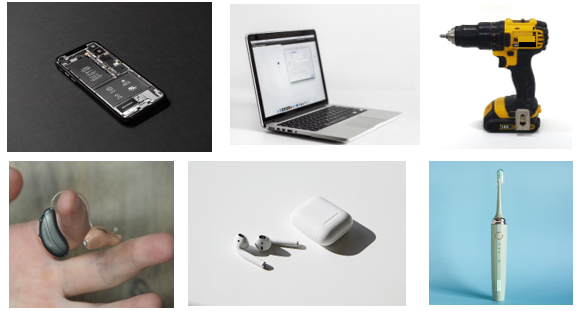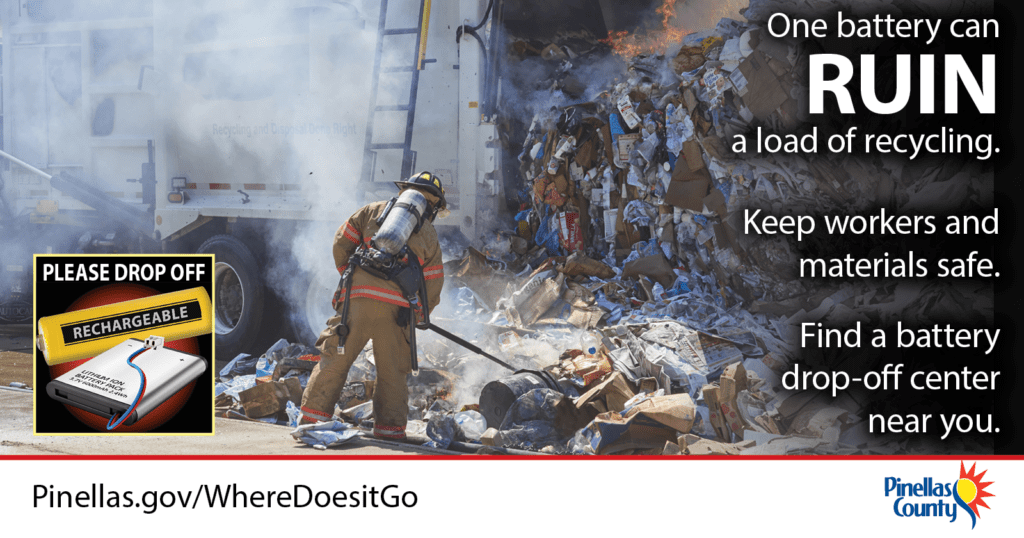Solid Waste encourages residents to properly dispose of rechargeable batteries to keep employees safe
Rechargeable batteries, such as those found in cell phones, laptops, hearing aids, power tools and toys, can cause fires in garbage and recycling trucks and at garbage and recycling processing facilities, including the Pinellas County Solid Waste Disposal Complex (SWDC). These fires can create dangerous situations for employees, cause damage to equipment and ruin perfectly good loads of recyclable material.

A Tampa Bay area work group of Pinellas Partners in Recycling was created to tackle important contamination issues in the region. The group focused on educating the public about properly disposing of rechargeable batteries due to the harm that can be done when improperly handled. The group developed ads using industry-specific marketing techniques that help the public have an emotional connection to the message.
Sometimes it’s hard to know if your items contain rechargeable batteries in the first place, so the work group is trying to help people understand what items to look out for and bring to drop-off centers.
Two of the ads, pictured above and below, include links to the County’s Where Does It Go? Search Tool, which is a searchable database where residents can find reuse, recycling and disposal options for hundreds of materials in Pinellas County. This search tool can be used to find local drop-off centers for rechargeable batteries.
Rechargeable batteries are one of the leading causes of fires in the solid waste industry. The National Waste and Recycling Association estimates that more than 5,000 fires occur annually at recycling facilities, and many are linked to lithium-ion batteries. When compressed, a rechargeable battery can explode and start fires. When these batteries are taken to a drop-off center for proper disposal, it limits the risk of fire in garbage and recycling trucks, and at garbage and recycling processing facilities.
These fires are happening here in Pinellas County! In February 2024, the Solid Waste Disposal Complex had a garbage truck arrive on fire. After the load was emptied and hosed down, it was determined that the cause of the fire was multiple lithium-ion batteries that came from a leaf blower battery pack.

Free battery drop-off centers are available throughout Pinellas County, including at common stores like Home Depot, Lowe’s and Batteries Plus Bulbs.

For more information on what types of batteries need to be taken to a drop-off center and to find a location near you, visit the Where Does It Go? Search Tool, select “For Homes,” then type “batteries” into the search bar.